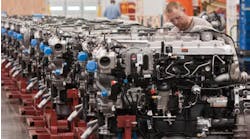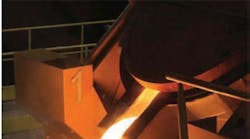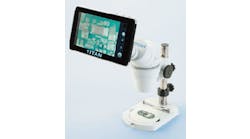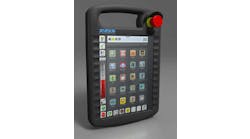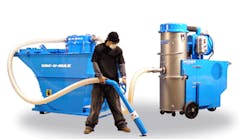In the most basic sense, refractories provide security: they insulate a furnace or crucible against heat loss, and metalcasters (among others) choose refractory products according to their ability protect materials, equipment, and processes. Refractory failure can be catastrophic, and refractory producers understand how important it is for manufacturers to have confidence in the products and systems they select. Reno Refractories Inc. (www.renorefractories.com) manufactures refractory products, including customized precast shapes, for foundries, steel and aluminum producers, cement and mineral processors, power and petrochemical plants, among others. Headquartered in Morris, AL, Reno has a global market, and its IT environment is essentially a virtual one. It uses Citrix XEN host servers with an EMC AX 4-51 production SAN, a secondary "Metal" domain controller, a "Metal" application server, and two host XEN servers. Ten of Reno's servers are virtual; four are physical. It uses Exact Software's Macola ES (ERP), Microsoft SQL server (mission-critical databases and Exchange Server 2010 for email, contacts and calendars), and its primary domain controller (active directory services), and DHCP and local DNS among its critical applications. The infrastructure supports 25 local users and eight to 10 others who access the system from remote drives. In April 2011, deadly thunderstorms, winds, and tornadoes spread across the South, claiming lives and leaving homes and businesses in ruins. Fifty miles from the worst of the damage, Reno Refractories took note. "Many businesses in the Tuscaloosa area were not able to recover after the tornado damage because their business identity was completely obliterated," according Wayne Bailey, the company’s network administrator. Reno had several types of disaster-recovery solutions to rebuild physical structures and replace equipment in case of disaster. Symantec Backup Exec was its primary data backup program; otherwise, its recovery plan involved executing a disk-to-disk-to-tape backup, then carrying the tapes offsite to a local bank safety deposit box. These were not considered adequate to protect data, applications, and servers. "If we were hit with another devastating tornado, there would be no way to determine who owes us money and to whom we owe money. Data about our inventory, customers, and vendors would be wiped out," Bailey continued. He estimated that in case of a natural disaster, system downtime could last up to three months, and Reno would have to secure replacement equipment along with a data center to co-locate the equipment until it could repair or rebuild. This could cost $3 million to $6 million, they estimated. "These were real problems for which we had no solution," Bailey said.An email message had introduced Bailey to the Quorum Hybrid Cloud Solution (www.quorumlabs.com), and later he watched a live at a demonstration. Quorum develops appliance and hybrid cloud network programs to ensure data continuity for small to mid-sized companies. Bailey researched several alternatives in Reno's price range, but found that they were all tier-two or tier-three programs, and would require investment in another SAN appliance for disk space, or increased capacity within Reno's current SAN, with that space allocated to local backups. Others products offered appliance-based solutions, but he determined could not perform virtual machine backups of a Citrix XEN environment. After thorough evaluations and input from a reseller, Bailey determined the Quorum Hybrid Cloud Disaster Recovery Solution was Reno’s best choice. Now, Quorum is protecting six mission-critical servers: Four are tier-one protected nodes with one-click recovery; two are backup only, used in Reno's virtual desktop infrastructure.Bailey takes confidence knowing that Quorum is in place. He receives immediate email responses if one of the critical system nodes goes down, and again when it is back online and functional. Quorum also emails a daily report detailing the number of backups that have occurred for each node over a 24-hour period, and whether the auto-test function passed or failed. "I can sleep at night now knowing that our critical systems are fully protected — both for local HA and DR," he said.Recently, Reno had a bank audit that reconfirmed Quorum's value. The lenders were impressed with the level of technology Reno had selected for its backup, recovery, and continuity plan. "I believe they feel very secure with their investments in our company, and a large part of that reason is due to the integrity of our systems, and the ability to recover quickly in the event of a disaster," said Bailey. "They left after the audit knowing without a doubt that our data is secure."Since the installation, Reno has faced a few virtual machine failures, after which Bailey expected they'd have to resort to a Quorum HA recovery node backup. Even though these issues were resolved without having to use the Quorum solution, Bailey said knowing it was available brought peace of mind. "We know that in any situation, we can recover our data, applications and servers by simply pressing a button. It certainly takes the pressure off."
